
Henry Riley 4am - 7am
31 December 2020, 13:56 | Updated: 31 December 2020, 19:40
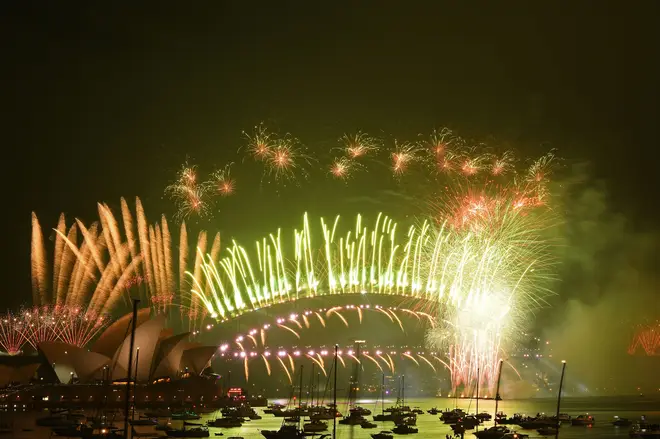
Countries around the world have started to see in New Year celebrations, with New Zealand among the first countries to mark the start of 2021.
Despite looser restrictions in New Zealand, millions around the world will still be celebrating the New Year at home because of COVID-19.
Australia was among the first nations to ring in 2021 because of its proximity to the International Date Line. In previous years a million people flocked to watch fireworks at the Sydney Harbour Bridge.
Authorities advised revellers to watch on television this year. People are only allowed in Sydney city centre if they have a restaurant reservation or are one of five guests of an inner-city apartment resident. People will not be allowed in the city centre without a permit.
Some harbourside restaurants are charging up to 1,690 Australian dollars (£948) for a seat, according to reports in Sydney's
The Daily Telegraph newspaper.
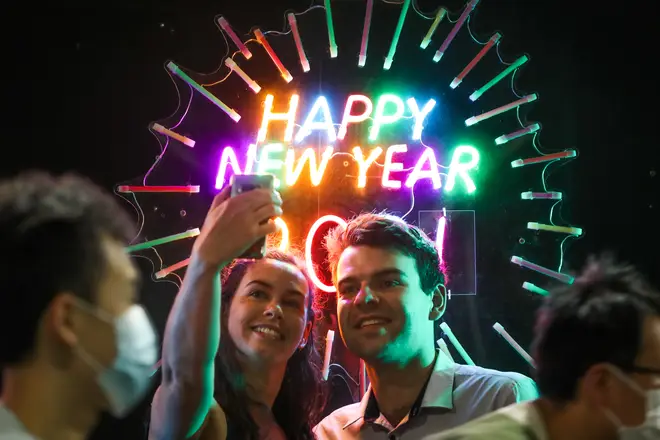
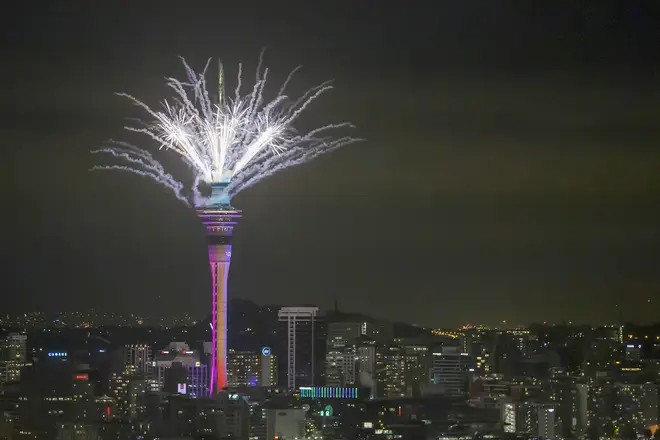
Sydney is Australia's most populous city and has its most active community transmission of Covid-19 in recent weeks. Melbourne, Australia's second-most populous city, has cancelled its fireworks.
Melbourne mayor Sally Capp said: "For the first time in many, many years we made the big decision, difficult decision to cancel the fireworks.
"We did that because we know that it attracts up to 450,000 people into the city for one moment at midnight to enjoy a spectacular display and music. We are not doing that this year."
In notable contrast, the west coast city of Perth - which has not had community spread of the virus since April - was gearing up to celebrate the new year almost normally with large crowds expected to watch two fireworks spectacles.

Hong Kong welcomes in New Year with virtual firework display
New Zealand, which is two hours ahead of Sydney, and several of its South Pacific island neighbours have no Covid-19 cases, and New Year celebrations there are the same as ever.
In Chinese societies, the Lunar New Year celebration that falls in February in 2021 generally takes precedence over solar New Year on January 1. While celebrations of the Western holiday have been growing more common in recent decades, this year will be more muted.
Beijing will hold a countdown ceremony with just a few invited guests, while other planned events have been cancelled.
Taiwan is hosting its usual New Year's celebration, a fireworks display by its capital city's iconic tower, Taipei 101, as well as a flag-raising ceremony in front of the Presidential Office Building the next morning.
The flag raising will be limited to government officials and invited guests after a traveller who recently arrived in Taiwan was found to be infected with the new variant of the coronavirus.
The island has been a success story in the pandemic, registering only seven deaths and 700 confirmed cases of Covid-19.
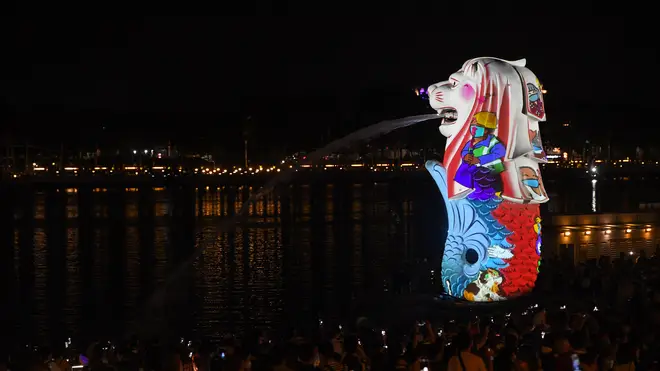
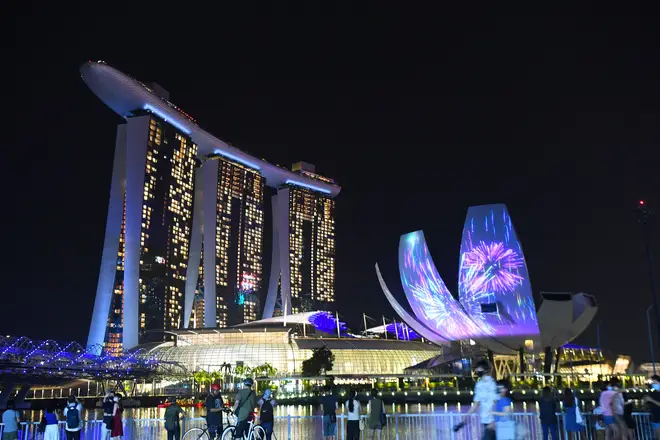
Hong Kong, with its British colonial history and large expatriate population, has usually seen raucous celebrations along the waterfront and in bar districts. For the second year running, however, New Year's Eve fireworks have been cancelled, this time over coronavirus rather than public security concerns.
Hong Kong social distancing regulations restrict gatherings to only two people. Restaurants have to close by 6pm and live performances and dancing are not allowed. But crowds still fill shopping centres.
In Japan, some people skipped what is customarily a chance to return to ancestral homes for the holidays, hoping to lessen health risks for extended families.
Rural restaurants saw business drop, while home deliveries of traditional New Year's "good luck" food called "osechi" boomed.
Emperor Naruhito is delivering a video message instead of waving from a window with the imperial family as cheering crowds visit the palace.
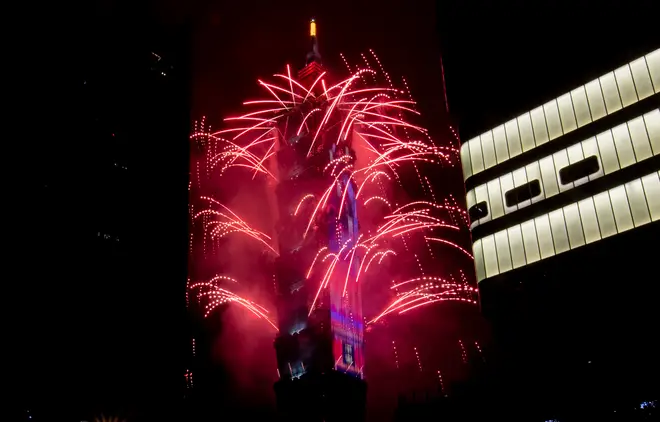
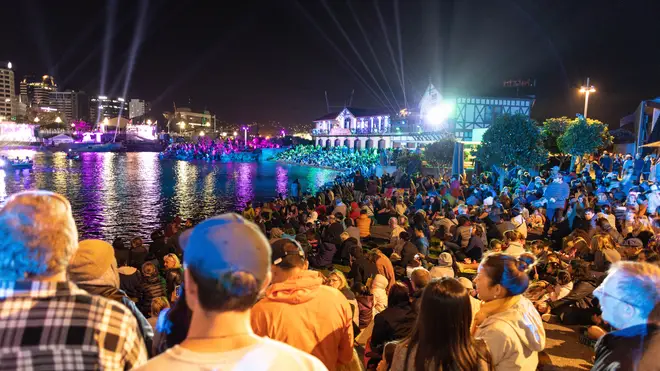
In South Korea, Seoul's city government cancelled its annual New Year's Eve bell-ringing ceremony in the Jongno neighbourhood for the first time since the event was first held in 1953, months after the end of the Korean War.
The ceremony, in which citizens ring a large bell in a traditional pavilion when the clock strikes midnight, normally draws an estimated 100,000 people and is broadcast live.
Authorities in eastern coastal areas closed beaches and other spots where hundreds of thousands of people typically gather on New Year's Day to watch the sunrise. The southeastern city of Pohang instead planned to broadcast live the sunrise at several beaches on its YouTube channel.
It's already 2021 in some parts of the world 🎆
— Met Office (@metoffice) December 31, 2020
The first capital to see in the new year was Apia, Samoa, and just next door Pago Pago, American Samoa will be the last (11 hours after the UK) 🕚 pic.twitter.com/PpmlIbCiw5
South Korea's central government banned private social gatherings of more than five people and shut down ski resorts and major tourist spots nationwide from Christmas Eve until January 3 to help bring a recent viral resurgence under control.
Millions of Indians planned to usher in the new year with subdued celebrations at home because of night curfews, a ban on beach parties and restrictions on movement in major cities and towns after the new, more contagious variant of the coronavirus reached the country.
Many revellers flocked to Goa, a former Portuguese colony and popular backpacking destination with numerous beach resorts. Authorities decided against imposing a curfew with coronavirus infections largely controlled there.
In Sri Lanka, public gatherings have been banned due to a resurgence of Covid-19, and health and law enforcement authorities urged people to limit celebrations to close family members.